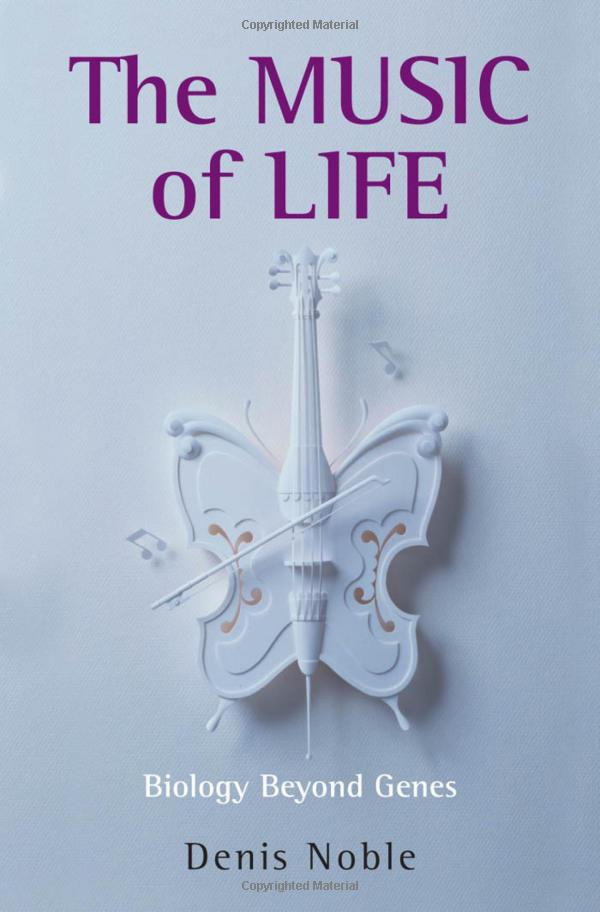
Booksellers
.
TRANSLATIONS
Music of Life Lecture
Accolade for best review goes to a customer on Amazon.com:
Also on Amazon
An outstanding introduction to Systems Biology and an essential read for anyone interested in systems within the human body. Prof. Noble has produced a gem of a book. Dr Kia Balali-Mood
“Humpty-Dumpty has been smashed into billions of fragments. This is an impressive achievement.” The question is: “Can we put Humpty-Dumpty back together again?” This is where ‘systems biology’ comes in.
These quotes from The Music of Life convey the main theme of the book, namely that there is no privileged level of causality in biological systems.
Noble acknowledges the fruits and achievements that reduction has brought to biology. In fact, he himself started his research career as a reductionist. But he also realised that reduction alone is not sufficient; we need `systems biology’ to redress the balance.
This book is about redressing the balance. It uses an interesting analogy: music. The music emerging from an orchestra cannot be explained simply in terms of the score or the organs. It is much more than that. It emerges at a higher level. Similarly, life cannot be explained in terms of the genome or the cell. You need to see the bigger picture.
Highly recommended.
M. Eesa
Author of `The Cosmic History of the Elements’
Synopsis
What is Life? Decades of research have resulted in the full mapping of the human genome – three billion pairs of code whose functions are only now being understood. The gene’s eye view of life, advocated by evolutionary biology, sees living bodies as mere vehicles for the replication of the genetic codes. But for a physiologist, working with the living organism, the view is a very different one. Denis Noble is a world renowned physiologist, and sets out an alternative view to the question – one that becomes deeply significant in terms of the living, breathing organism. The genome is not life itself. Noble argues that far from genes building organisms, they should be seen as prisoners of the organism. The view of life presented in this little, modern, post-genome project reflection on the nature of life, is that of the systems biologist: to understand what life is, we must view it at a variety of different levels, all interacting with each other in a complex web. It is that emergent web, full of feedback between levels, from the gene to the wider environment, that is life. It is a kind of music.Including stories from Noble’s own research experience, his work on the heartbeat, musical metaphors, and elements of linguistics and Chinese culture, this very personal and at times deeply lyrical book sets out the systems biology view of life.
